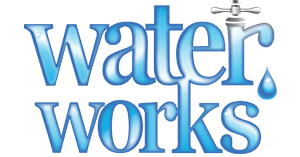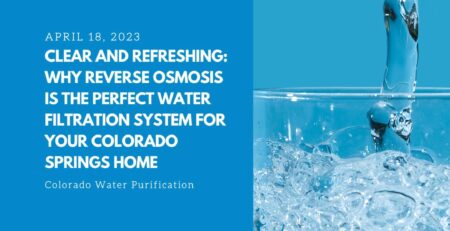Fort Collins’ Approach to Managing Tap Water Contaminants: A Community Perspective
As a homeowner, one of the most essential services you rely on is clean tap water. It’s something we often take for granted, turning on the faucet without a second thought. But have you ever wondered about what goes into ensuring the safety and quality of your tap water? Look no further than Fort Collins, Colorado – a city that takes great pride in its innovative approach to managing tap water contaminants. In this blog post, we’ll dive into how Fort Collins has become a model for other communities when it comes to protecting their drinking water and engaging with residents along the way. So sit back, grab a glass of water (from your well-managed tap) and discover why Fort Collins’ perspective on managing tap water contaminants deserves attention from homeowners everywhere.
Introduction to Fort Collins’ tap water and the potential contaminants
When it comes to drinking water, many of us assume that the water from our taps is clean and safe to drink. However, tap water in Fort Collins, like many other cities, can contain potential contaminants that can pose risks to our health. These contaminants can come from a variety of sources, including agricultural runoff, industrial waste, and even natural occurrences like algae blooms. Some of the potential contaminants in Fort Collins tap water include lead, bacteria, pesticides, and nitrates. It’s important to understand the potential risks associated with our drinking water and take steps to ensure that we are protecting our health and wellbeing.
The impact of contaminated tap water on the community’s health and well-being
Access to clean and safe drinking water is a fundamental right for everyone, yet millions of people around the world, including the United States, are exposed to contaminated tap water every day. The impact of this contamination on the community’s health and well-being can be dire, causing a wide array of illnesses ranging from gastrointestinal problems to cancer. Even low levels of contamination can have severe consequences, particularly for vulnerable populations such as children, the elderly, and individuals with compromised immune systems. Contaminated tap water not only affects individuals’ health, but it can also lead to a loss of trust in the government that is responsible for ensuring our basic needs are met. It’s time to take action and address this pressing issue to safeguard the health and well-being of our communities.
Overview of Fort Collins’ approach to managing tap water contaminants
Fort Collins, Colorado is committed to providing safe and clean tap water to its residents. To achieve this, the city employs a multi-step approach to managing tap water contaminants. Beginning with an extensive water treatment process, which includes disinfection and filtration, the water undergoes regular testing to ensure that it meets or exceeds state and federal standards. In addition, the city actively monitors and manages potential sources of contamination, such as agricultural runoff and industrial discharges. By prioritizing public health and the environment, Fort Collins is setting a high standard for responsible tap water management.
Collaboration between local government and community organizations in addressing water quality issues
The quality of our water is a vital issue that affects every member of our community. That’s why it’s so important to have collaboration between local government and community organizations in addressing water quality issues. Acting together, we can pool our resources and expertise to improve the quality of our drinking water and protect the health of our families. By partnering with local organizations, townships can tap into their specialized knowledge of local ecology and water systems, and leverage the passion and energy of community members to promote active participation in environmental initiatives. Together, we can make a difference in ensuring safe and healthy water for generations to come.
Implementation of innovative technologies and methods for treating tap water
Advancements in technology have revolutionized the modern world as we know it. From smartphones to self-driving cars, these innovative solutions have transformed the way we live our daily lives. But did you know that technology is also responsible for providing clean, safe drinking water to millions of people? The implementation of innovative technologies and methods for treating tap water has made it possible to remove contaminants and bacteria that were once undetectable. Through cutting-edge treatments like reverse osmosis, UV disinfection, and advanced oxidation, tap water is now considered to be one of the safest and most reliable sources of drinking water available. With these innovative solutions, we can enjoy peace of mind knowing that every time we turn on the tap, we are consuming water that is free of harmful contaminants.
Regular testing and monitoring of tap water to ensure safety
When you turn on your tap to fill up a glass of water, you expect it to be safe for consumption. However, without regular testing and monitoring, the safety of your tap water could be compromised. Whether it’s contaminants from aging pipes or pollutants from nearby industrial activity, there are many potential threats to the quality of your tap water. By implementing regular testing and monitoring procedures, authorities can detect any issues early on and take steps to correct them before they become a serious health risk. As consumers, it’s important for us to advocate for the safety of our tap water and demand that testing and monitoring measures are in place to ensure its quality.
Community involvement in reporting and addressing potential contamination sources
Our community is at the forefront of addressing potential contamination sources in our area. With community involvement in reporting and addressing these sources, we are able to take swift action and prevent any harm that may result from contaminated air or water. By encouraging and empowering community members to speak up, we not only protect our own health and wellbeing, but also improve the quality of life for everyone around us. Together, we form a strong network of individuals who are committed to creating a safe and healthy environment for ourselves and future generations. So let’s continue to work together and stay vigilant in our efforts to identify and eliminate potential contamination sources.
Education and outreach programs aimed at promoting awareness about tap water quality
Clean and safe drinking water is a fundamental requirement for human survival. However, not all tap water across the globe meets the highest standards of quality. There is a growing need to raise awareness about tap water quality to ensure that people have access to the safest and cleanest drinking water. Education and outreach programs can serve as great tools to promote public awareness about the importance of clean tap water. Such programs can provide valuable information about tap water quality standards, contaminants, and the methods used to ensure safe drinking water. Educating people through these programs can create a sense of responsibility amongst individuals towards maintaining clean tap water. It can also help prevent illnesses caused by contaminated drinking water, thus improving overall health and wellbeing in communities.
Successes and challenges faced by Fort Collins in managing tap water contaminants
Fort Collins, like many other cities, has dealt with its fair share of challenges when it comes to managing tap water contaminants. However, it’s important to note that the city has also had some notable successes in this area. For example, Fort Collins was one of the first cities to stop using a chemical called hexavalent chromium, which can cause cancer, in its water treatment process. Additionally, the city has implemented a comprehensive water testing program to ensure that contaminants don’t slip through the cracks. That said, challenges still remain, particularly with emerging contaminants like PFAS, which have been found in some areas of the city. The city is actively working to address these concerns and find solutions that will ensure safe, clean drinking water for all residents.
Future plans for improving tap water quality in the community
Access to clean and safe tap water is a fundamental right that every citizen deserves. Therefore, communities must be proactive in their approach towards ensuring that their water sources are free from contaminants. Fortunately, many initiatives are being implemented to improve tap water quality in various localities. These range from upgrading water treatment facilities, enhancing infrastructural frameworks, to increasing investments in advanced technology. Besides, there is a growing awareness of the need to address issues like climate change and water pollution, which have a direct impact on water quality. Given these initiatives, it is clear that communities are taking their water quality seriously, and are making efforts to secure a sustainable future for their residents.
Conclusion emphasizing the importance of a collaborative approach in ensuring safe tap water for all residents
Access to clean and safe tap water is a fundamental right for every person. However, ensuring that all residents have access to such water requires a collaborative and synchronized approach from all stakeholders. It is not only the responsibility of the government or the water suppliers to ensure safe tap water but also the obligation of residents to use it responsibly. Regular monitoring, inspection, and maintenance of water treatment facilities and distribution systems are crucial steps to ensure that tap water is of the highest quality. Therefore, a collaborative approach between the government, water suppliers, residents, and other stakeholders is essential to ensure that the tap water remains safe for everyone to use. By working together, we can guarantee that no one is left behind when it comes to access to clean and safe tap water, and we can continue to enjoy this essential resource for years to come.
In conclusion, the issue of tap water contamination in Fort Collins is not one to be taken lightly. As we have seen, the potential effects on our health and well-being can be devastating, making it essential for us to take action in addressing this issue. However, through a collaborative effort between the local government and community organizations, Fort Collins has been able to implement effective measures in managing tap water contaminants. From the use of innovative technologies to regular testing and monitoring, there has been a significant improvement in the quality of tap water in our community. This has only been possible due to the involvement of community members in reporting and addressing potential sources of contamination, as well as education and outreach programs focused on promoting awareness about tap water quality. While there have certainly been successes, such as significant reductions in certain contaminants, there are still challenges that must be addressed. But with a strong commitment from both the government and the community, there is no doubt that Fort Collins will continue to make strides towards improving tap water quality for all residents. It is important for us to remember that this issue affects us all and requires a collective effort to overcome. Let us stay informed, involved, and proactive in ensuring safe tap water for ourselves and future generations. Together, we can make a positive impact on our community’s health and well-being through accessible and high-quality tap water.











